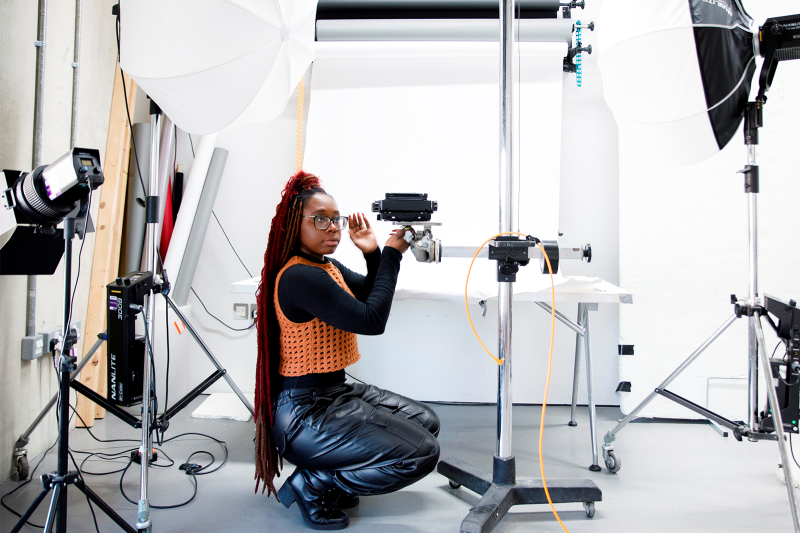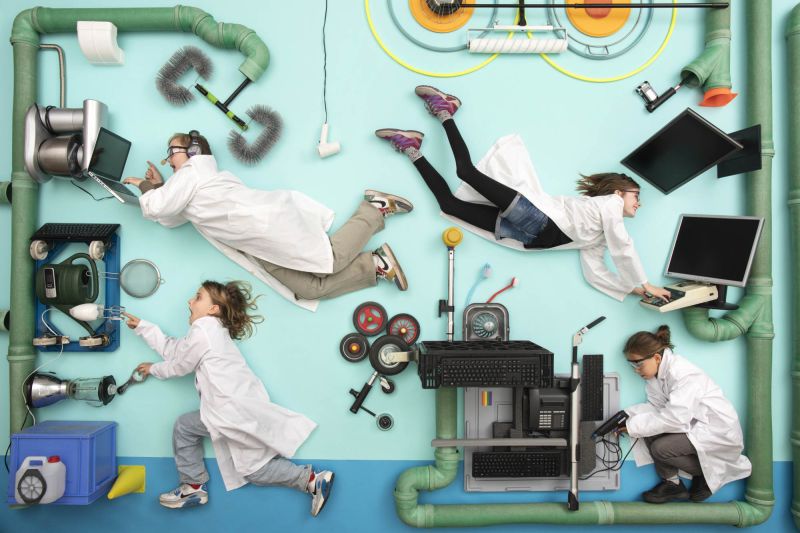Now Reading: Why learning to interact with technical specialists is key to creative success
-
01
Why learning to interact with technical specialists is key to creative success
Why learning to interact with technical specialists is key to creative success

In the pursuit of advancing our careers, we often prioritize enhancing our creativity. However, this is only part of the equation. Having a brilliant idea is pointless if you cannot put it into action. A key ingredient that is sometimes overlooked in the success of projects is the ability to collaborate effectively with technical experts. At the Royal College of Art (RCA), this collaboration is not just encouraged but deemed essential for students. The RCA’s Technical Services team, consisting of diverse experts, plays a vital role in translating visions into reality by guiding students through the technical and technological aspects of their programs, from creation to materialization.
Whether students are exploring biomaterials, creating intricate metalwork, delving into analog photography, or engaging in various other activities, these experts assist in turning ambitious ideas into tangible outcomes. Their role extends beyond troubleshooting and equipment maintenance; they also act as collaborators, mentors, and at times, co-creators, significantly influencing the creative process.
For instance, Maria Li, a technical instructor specializing in Biomaterials at the RCA, emphasizes her role in fostering innovation and supporting aspiring creatives in discovering the wonders of biomaterials. Maria, with a background in biology and citizen science, advocates for making technical knowledge accessible to all. Her advice to students is to view technicians as partners in their creative journey and not to hesitate to seek help. Maria often collaborates with students to research solutions for unconventional requests, such as assisting an MA Architecture student in growing mycelium tiles, blending creative exploration with scientific rigor.
Engaging with technical experts involves more than seeking assistance; it entails building relationships based on mutual respect, effective communication, and a willingness to learn. Rather than merely presenting an idea and expecting experts to execute it, students are encouraged to acquire the skills to implement their ideas themselves, following the principle of “teach a man to fish.”
Members of the Technical Services team, like darkroom specialist Melanie Issaka and metal engineering instructor Alexander Flood, emphasize the importance of early involvement, curiosity, clear communication, respect for expertise, and collaborative spirit in interactions with students. These collaborative efforts not only benefit students in overcoming technical challenges but also lead to new discoveries in their creative practices.
In the increasingly complex and interdisciplinary landscape of creative projects, mastering the art of creative-technical collaboration is crucial for realizing visions, problem-solving, and establishing professional networks. The advice from Maria, Melanie, and Alexander underscores the significance of involving technical staff early, staying curious, communicating effectively, acknowledging expertise, and embracing collaboration to unleash creative potential and achieve extraordinary outcomes.






